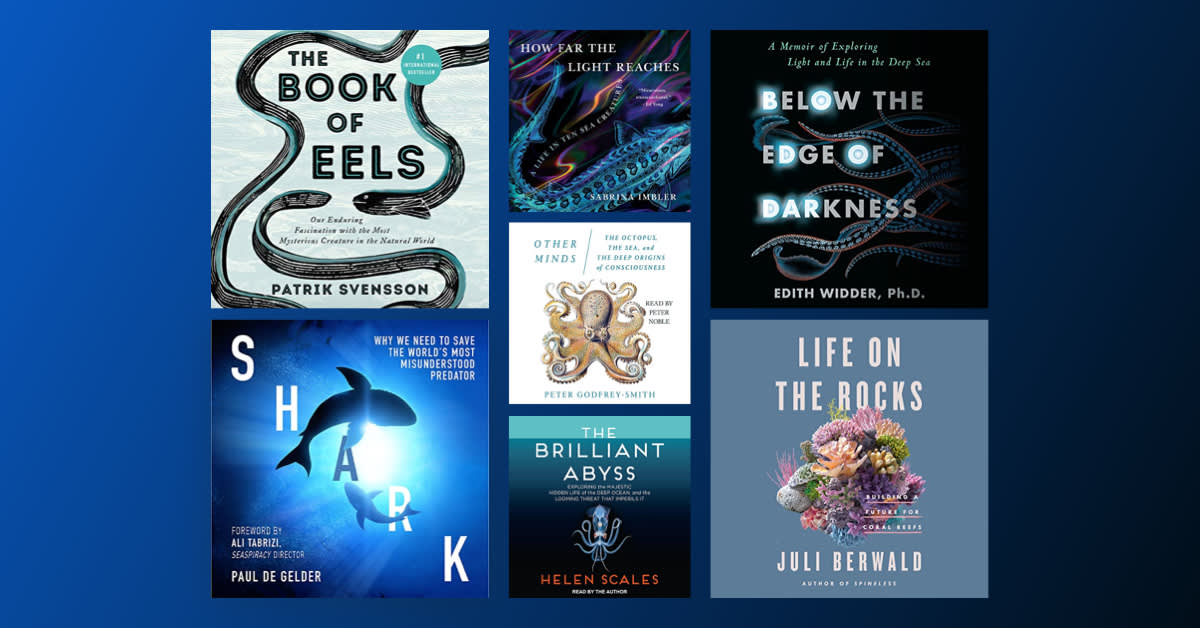This year marks the 50th anniversary of the publication of the iconic novel Jaws by Peter Benchley in 1974. The book was quite popular in its own right, but it was Steven Spielberg's film adaptation in 1975 that made Jaws a household name. Upon its release, Jaws was the highest-grossing film of all time—it won several awards, and basically originated the notion of the summer blockbuster. Like other pivotal films, the release of Jaws marked a before and after in cinematic history.
To celebrate the 50th anniversary of the book and the upcoming 50th anniversary of the film in 2025, we've taken a deep dive into the differences between the two. Fans of the film might be surprised by some of the history surrounding the book and how it came to be, as well as by just how different the original novel is from its famous adaptation.
Who wrote Jaws?
The novel Jaws was written by Peter Benchley. Benchley was a struggling freelance journalist when Doubleday commissioned Jaws in 1971. Benchley grew up fishing with his father in the waters off Nantucket, where they often encountered sharks, and had a lifelong fascination with the creatures. He became even more interested in sharks after reading an article in 1964 about Frank Mundus, who caught a massive great white shark off the coast of Long Island. The Doubleday editor who commissioned Jaws was reportedly not interested in Benchley's various nonfiction book ideas, but he did like the sound of a novel about a killer shark terrorizing the population of a small tourist town. Thus, Jaws was born.
Benchley put a huge amount of research into the project, reading up extensively on sharks, and finished the manuscript in a year and a half. A fun bit of little-known Jaws trivia is that its famous, catchy title was not decided on until the last possible moment. Nevertheless, Jaws became an immediate hit—it was picked up by numerous book clubs and remained on the bestsellers list for 44 weeks. Despite its enormous commercial success, the novel received mixed reviews from critics.
Later in his life, after Jaws became a cultural phenomenon, Peter Benchley expressed regret that his book had contributed to societal fear and negative attitudes toward sharks. He became a staunch environmentalist and ocean conservationist, with a particular interest in shark conservation.
How did Jaws become a movie?
The 1975 adaptation of Jaws was only Spielberg's third film; he was 26 during its production. Jaws was shot mostly on location on Martha's Vineyard, and because so much of the story takes place on the ocean, it faced major production challenges. No other major film at that time had been shot primarily on the ocean, and significant technical difficulties led to the reduced role of mechanical shark Bruce. Ironically, this obstacle created one of the film's strengths—the ominous felt presence of the shark, rather than its visual appearance, created unparalleled tension, heralded by a score written by John Williams. Peter Benchley cowrote the film with Carl Gottlieb. Roy Scheider stars as police chief Martin Brody, alongside Richard Dreyfuss as marine biologist Matt Hooper, and Robert Shaw as the professional shark hunter Quint. Lorraine Gary also stars as Brody's wife, Ellen.
Jaws was an immediate hit, becoming the highest-grossing film of all time—though Star Wars would steal that title upon its release in 1977. Most notable about the movie's huge success was its marketing as a summer blockbuster event. The summer blockbuster—that big-budget Hollywood movie that everyone talks about—is just a part of the entertainment lexicon now. But before Jaws, it didn't really exist. The movie became a cultural touchstone and changed the film industry at the same time.
Major differences between the Jaws book and movie
Though the movie and the book share the same basic plot—a great white shark is terrorizing the people of a beach resort town, and three men eventually set out to hunt it down—there are quite a few significant differences between the two, both in plot and tone. Let's get into it.
Differences in setting
Though both the book and the movie are set in the beachside tourist town of Amity, the book’s Amity is on Long Island, and in the film, Amity is a fictional island somewhere in New England.
Differences in plot
In general, the film is much more streamlined. While the book contains various subplots and long stretches of description about sharks and fishing, the movie cuts right to the (literal) chase, focusing on the suspense of the shark hunt. Notably, there are two major subplots that do not appear in the film.
The first is the affair between oceanographer Matt Hooper and Ellen Brody, wife of police chief Martin Brody. Brody and Ellen's marital tension, Ellen's affair, and the subsequent fallout factor prominently in the book. Many critics agree this omission only makes the movie stronger, as the subplot adds nothing to the suspense and terror at the heart of the film.
The other major subplot missing from the movie is Mayor Larry Vaughn's ties to the mafia. In the book, he keeps the beaches open for so long despite all the violent shark attacks due to pressure from the mob. In the movie, his determination to keep the beaches open is painted as a real (if misguided) concern for what will happen if the town suffers a terrible tourist season.
Differences in characterization
The biggest difference between Benchley's characters and Spielberg's is their likability. Spielberg famously admitted that he did not like any of the characters in Benchley's novel, and he set out to make them more interesting and amiable in the film. One of the most obvious ways this plays out is in the relationships between the three main characters—Brody, Quint, and Hooper—who spend most of the movie trying to kill the shark. In the book, there's a lot of tension and disagreement among the three men. In the movie, while there is some disagreement between them, they more or less feel like a united front. Here are some specific differences between the central characters in the book and film.
Chief Martin Brody: In the novel, Brody is somewhat morose and despondent. He's worried his wife is having an affair, and his frustration seeps into his actions. In the movie, he's much more heroic—a devoted father and hardworking man determined to do what's best for his family and the people of Amity. Another significant change is where he comes from. In the book, he's a longtime Amity local; in the film, he's a transplant from New York City who is terrified of water.
Quint: The gruff shark hunter has a much bigger role in the movie, as he only appears toward the very end of the book. Like Brody, he received a movie makeover that makes him a more fascinating character. In the film, he's a WWII veteran who survived the USS Indianapolis disaster. This added backstory is one of the most significant changes Spielberg made. It is Quint's experience as a vet that leads to his famous monologue about the naval disaster—an iconic scene that has since become legend.
Matt Hooper: Much like Brody and Quint, oceanographer Hooper received a significant overhaul from his more complicated literary counterpart. In the film, he is stripped of his self-importance and instead exudes a nerdy charm. As previously stated, he also does not interfere with the Brodys’ marriage in the movie.
Ellen Brody: In the book, Ellen is deeply unhappy in her marriage, misses her earlier freedom, and feels resentful toward her husband. The tension between her and Brody is a major subplot. In the movie, she plays a smaller role as a supportive wife ready to cheer her husband on.
Harry Meadows: Newspaper reporter Harry Meadows plays a much bigger role in the book. He works with Brody to keep news of the shark attacks under wrap, urges the mayor to keep the beaches open, and even has a hand in bringing Matt Hooper to Amity. In the movie, his character makes little more than a cameo appearance.
Is the ending of Jaws different in the book?
Yes. The ending of the movie, despite the death of Quint, is unequivocally hopeful and upbeat; the ending of the novel, however, is much darker and more bittersweet.
The climactic scene begins the same way in both movie and film. Hooper, Quint, and Brody are out on the ocean and attempt to kill the shark using a shark-proof cage, which Hooper gets inside of.
In the book, the shark bites through the cage and kills Hooper. Quint attempts to harpoon it and does so several times, but he's eventually dragged into the water and drowned. Alone in the wreckage of the boat, Brody prepares to die as well, but the shark ends up dying of its wounds and sinks harmlessly to the bottom of the ocean. Brody returns home alone.
In the movie, Hooper survives the shark's attack on the cage by escaping to the ocean floor. The shark then attacks the boat, devouring Quint, but Brody, in a last heroic effort, executes a most iconic (albeit impossible) move—he stuffs a scuba tank into the shark's mouth, climbs to the crow's nest of the sinking ship's mast, and shoots the tank, causing a massive explosion and the death of the shark. He and Hooper return, triumphant, to Amity.
How does the film version of Jaws differ tonally from the book?
If you saw Jaws and then went back to read the novel out of curiosity, the difference in tone might surprise you. The book is much darker and grittier. The characters are deeply complex and sometimes harder to root for, and there's a strong undercurrent of greed and corruption. The story highlights human failings and psychological entanglements. It feels much more like a human vs. human story, as opposed to the human vs. nature narrative of the film.
The film is both lighthearted and triumphant. The suspense is masterful, but there's also a sense of hope and heroism running through it. Spielberg's decision to focus on the terror of the shark attacks and the subsequent hunt, rather than the smaller and sometimes petty concerns of the characters, is what made the film such a massive blockbuster success with universal appeal.




